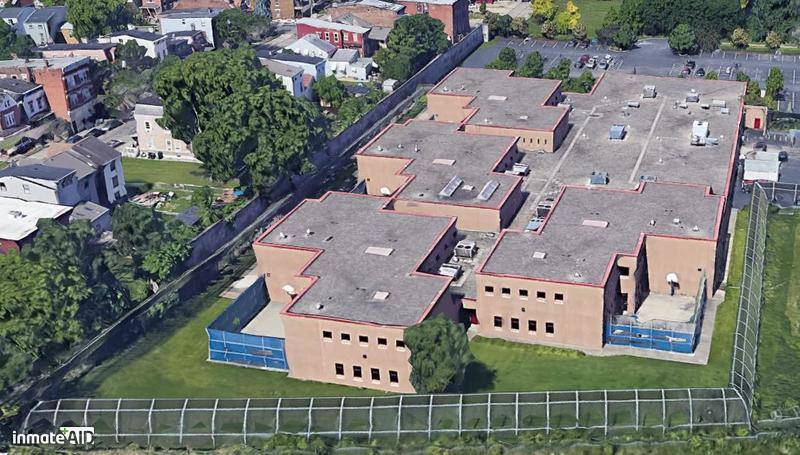Thank you for trying AMP!
You got lucky! We have no ad to show to you!
Connect with an Inmate
River City Correctional Center (RCCC)
Regional Facility
RCCC is for Regional Facility offenders have not been sentenced yet and are detained here until their case is heard.
All prisons and jails have Security or Custody levels depending on the inmate’s classification, sentence, and criminal history. Please review the rules and regulations for Regional Detention - low facility.
The phone carrier is Global Tel Link (GTL) - ConnectNetwork, to see their rates and best-calling plans for your inmate to call you.
If you are seeking to send your inmate money for commissary, one recommended for this facility is AccessCorrections There is a fee for sending money, see their rates and limitations.
If you are unsure of your inmate's location, you can search and locate your inmate by typing in their last name, first name or first initial, and/or the offender ID number to get their accurate information immediately Registered Offenders
You can support your loved ones at RCCC on InmateAid, if you have any immediate questions contact the facility directly at 513-946-6800.
The RCCC is a locally operated low to medium-security regional detention center situated at 3220 Colerain Ave in Cincinnati, OH. This facility houses inmates from multiple surrounding counties that do not have a holding facility or jail, in addition to local detainees. Individuals awaiting trial or sentencing, as well as those serving shorter sentences, typically serve less than five years. RCCC accommodates detainees brought in by the Hamilton County Sheriff's Office, the Ohio DOC, Cincinnati Police Department, and other nearby law enforcement agencies, including the U.S. Marshal’s Service.
New detainees arrive frequently and may be released on bail, under pretrial supervision, or on their recognizance with a commitment to appear in court. Those who remain in custody receive essential amenities, including secure accommodations, meals, and access to necessary services. To review recent arrest records for Ohio, you can access public records here.
Upon arrival at the River City Correctional Center (RCCC), all incoming residents undergo a thorough property search. All personal items, except for undergarments and shoes, must be collected by a family member or friend within two weeks of the resident's admission. If the property is not collected within this time frame, staff will dispose of it. For residents from outside the county, property may be held until their first visit. It is the resident's responsibility to inform their visitors about the need to pick up their property. If a resident does not receive any visits during their stay, the Security Supervisor assigned to their pod will make decisions regarding their property on a case-by-case basis.
Items such as jewelry, cell phones, and wallets will be kept for a maximum of six months. After this period, the Executive Director or a designee may dispose of these items at their discretion.
During their stay at RCCC, all residents are required to wear a uniform. Male residents wear a green uniform during the Orientation phase, while female residents wear an orange uniform. As residents progress through different phases, they will wear either a yellow or blue shirt with green or orange pants.
Books and magazines ordered for inmates must come directly from the publisher. This policy ensures that the items are new, untampered, and comply with the facility's regulations. Prisons and jails enforce this rule to prevent the introduction of contraband or prohibited materials. By restricting orders to publishers, the facility can better maintain security and control over the content entering the institution. Any books or magazines not received directly from the publisher will be rejected and not delivered to the inmate. You may, however, send letters and selfies to inmates with this easy-to-use app, packages starting at only $8.00.
The jail offers a phone program for outbound calls only, with inmates unable to receive incoming calls. Accepting collect calls can be expensive, sometimes exceeding $10 per call. Alternatively, setting up an account through a third-party phone company may entail high fees per minute of usage. Click here for discounts on inmate calls, especially if the communication with your inmate is frequent. It's important to remember that all phone calls are recorded, and discussing sensitive legal matters over these lines is discouraged.
When residents reach the later stages of the re-entry phase and become eligible for job-seeking activities, a second drop-off of items is authorized. The Employment Specialist assigned to the resident's pod will notify Security staff about who will be eligible for the upcoming week. Permitted items include four pairs of pants, four shirts, and work shoes. Boots are not allowed unless specifically required for a job. Clothing with logos or red-colored items will not be accepted. Female residents may also have make-up dropped off at this time, limited to foundation, blush, mascara, and lipstick. All make-up must be new, unopened, and free of mirrors or glass bottles.
These procedures ensure the security and orderliness of the facility while facilitating the residents’ rehabilitation and eventual reintegration into society.









